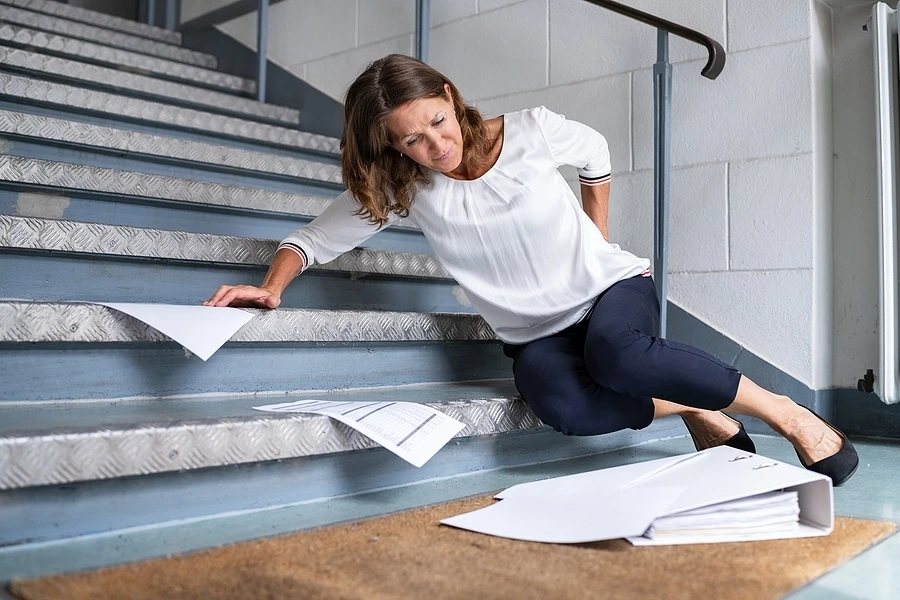Understanding Premises Liability Laws in South Carolina for Slip and Fall Cases

As residents of South Carolina, it’s important to understand the laws surrounding premises liability, especially when it comes to slip and fall cases. Slip and fall accidents can happen anywhere, from grocery stores to restaurants to office buildings. When these accidents occur due to the negligence of a property owner or manager, they can result in serious injuries and financial burdens for the victim. This blog post aims to provide a comprehensive overview of premises liability laws in South Carolina as they pertain to slip and fall cases.
What is Premises Liability?
Premises liability is a legal concept that holds property owners and managers responsible for maintaining safe conditions on their property. When someone is injured on someone else’s property due to unsafe conditions, the property owner may be held liable for the victim’s injuries. In the case of slip and fall accidents, property owners have a duty to ensure that their premises are free from hazards that could cause harm to visitors.
Duty of Care
In South Carolina, property owners owe a duty of care to anyone who enters their premises. This duty of care varies depending on the status of the visitor. There are three categories of visitors under premises liability law:
- Invitees: Invitees are individuals who are invited onto the property for the benefit of the property owner, such as customers in a store. Property owners owe the highest duty of care to invitees and must regularly inspect their property for hazards and take prompt action to address any dangers.
- Licensees: Licensees are individuals who have permission to enter the property but are not there for the owner’s benefit, such as social guests. Property owners must warn licensees of any known hazards that may not be obvious to the visitor.
- Trespassers: Property owners owe the lowest duty of care to trespassers, but they still cannot intentionally harm trespassers. They must also refrain from creating traps or hazards intended to harm trespassers.
Proving Liability in Slip and Fall Cases
To establish liability in a slip and fall case in South Carolina, the victim must prove the following elements:
- Duty: The property owner owed a duty of care to the victim based on their status as an invitee, licensee, or trespasser.
- Breach: The property owner failed to uphold their duty of care by allowing a hazardous condition to exist on their premises.
- Causation: The hazardous condition directly caused the victim’s slip and fall accident.
- Damages: The victim suffered actual damages, such as medical expenses, lost wages, and pain and suffering, as a result of the slip and fall accident.
Common Causes of Slip and Fall Accidents
There are several common causes of slip and fall accidents that may lead to premises liability claims in South Carolina. These include:
- Wet or slippery floors
- Uneven surfaces
- Loose rugs or mats
- Poor lighting
- Cluttered walkways
- Defective stairs or handrails
- Failure to provide warnings about hazards
Property owners have a duty to address these hazards promptly and effectively to prevent slip and fall accidents on their premises.
Comparative Negligence
In South Carolina, the concept of comparative negligence may impact slip and fall cases. Comparative negligence allows for the allocation of fault between the victim and the property owner. If the victim is found partly at fault for their own slip and fall accident, their compensation may be reduced proportionally. For example, if the victim was texting and not paying attention to their surroundings when the accident occurred, they may be considered partially responsible for their injuries.
Statute of Limitations
It’s important to be aware of the statute of limitations for filing a premises liability claim in South Carolina. The statute of limitations sets a deadline for taking legal action against the negligent property owner. In South Carolina, the statute of limitations for personal injury claims, including slip and fall cases, is generally three years from the date of the accident. It’s crucial to act promptly and consult with a personal injury attorney to ensure your legal rights are protected.
Conclusion
In South Carolina, premises liability laws govern slip and fall cases and hold property owners accountable for maintaining safe conditions on their premises. Victims of slip and fall accidents have the right to seek compensation for their injuries if they can prove that the property owner’s negligence led to their accident. By understanding the duty of care owed by property owners, the elements of proving liability, and the potential impact of comparative negligence, individuals can navigate slip and fall cases with a clearer understanding of their legal rights. If you have been injured in a slip and fall accident in South Carolina, it’s crucial to seek legal guidance from a skilled personal injury attorney to protect your interests and pursue the compensation you deserve.
